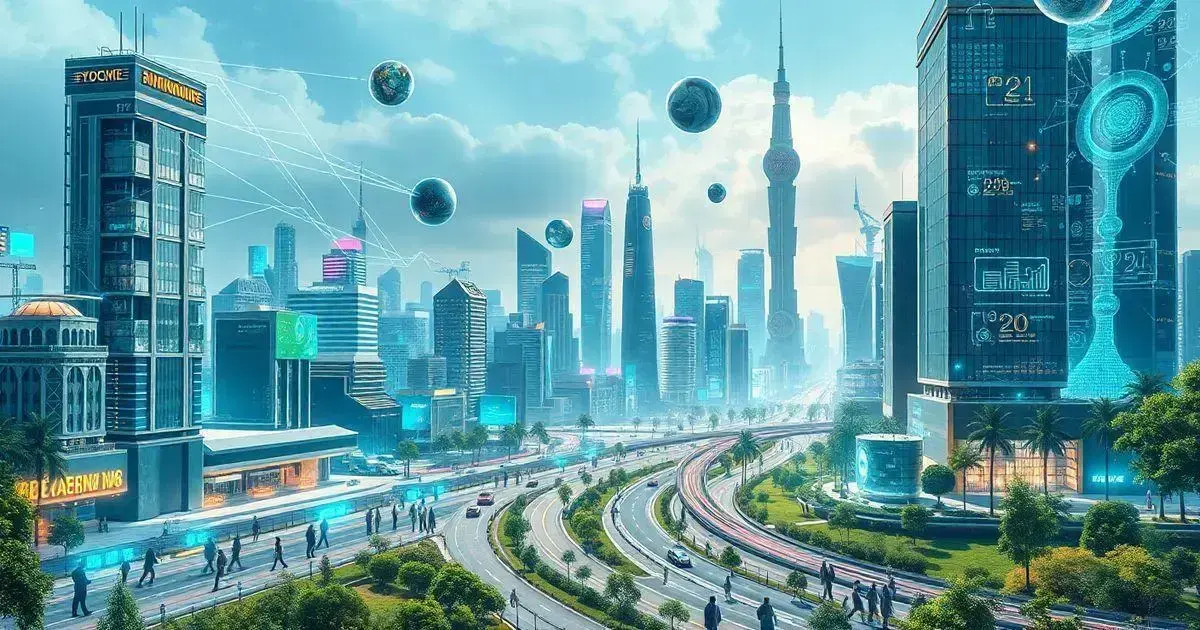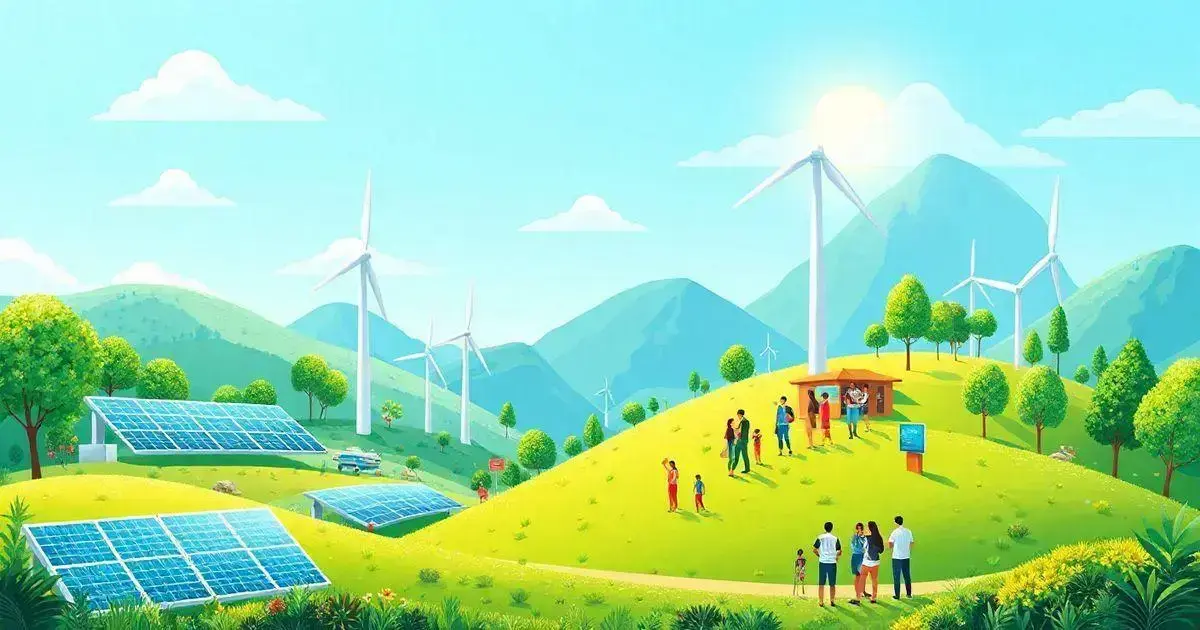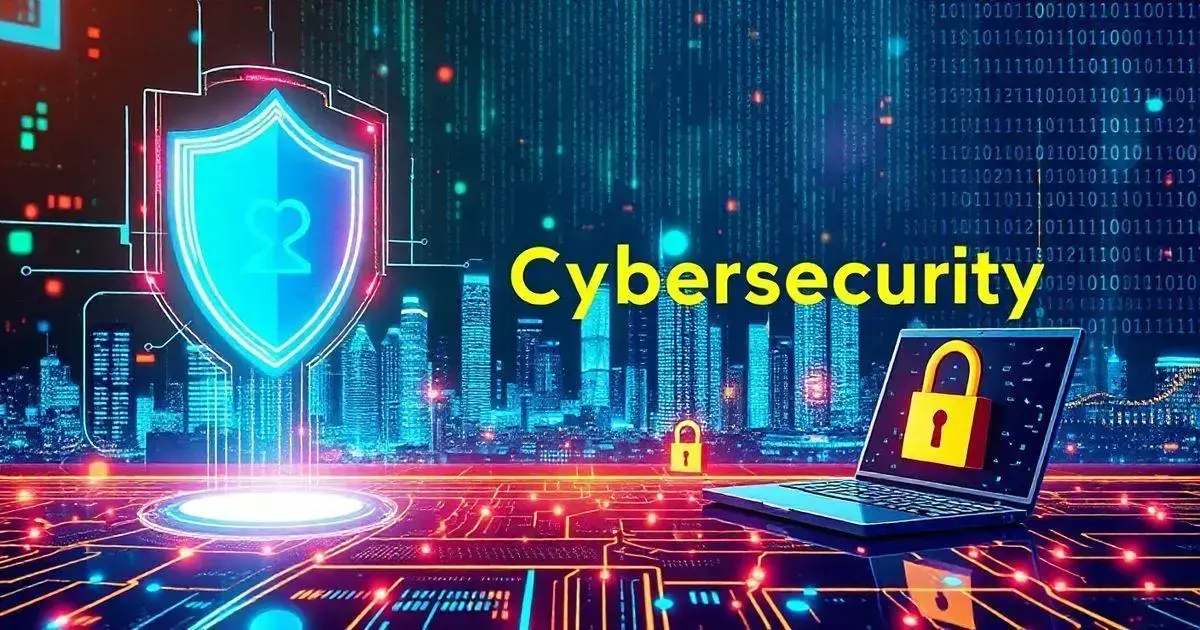The influence of emerging technology trends is undeniable, reshaping industries and revolutionizing daily life. As we step into 2024, staying informed about these advancements is crucial for businesses and individuals striving to remain competitive.
From breakthroughs in artificial intelligence to the transformative power of blockchain and the Internet of Things, these technologies are paving the way for a more interconnected and innovative world.
Curious to discover how these emerging technology trends are redefining the future? Keep reading to uncover insights that could transform your perspective and opportunities!
Understanding Emerging Technology Trends
Understanding emerging technology trends is crucial for businesses and individuals seeking to remain competitive in today’s fast-paced world.
These trends encompass a variety of technologies that have the potential to transform industries and reshape our daily lives.
Emerging technologies include advancements in areas such as artificial intelligence, blockchain, and the Internet of Things (IoT).
By staying informed about these changes, organizations can adapt and thrive in an evolving landscape.
For example, being aware of AI’s potential applications can help businesses improve decision-making and efficiency.
Furthermore, recognizing trends in IoT can lead to innovative solutions for customer engagement and operational efficiency.
Engaging with these technologies not only prepares businesses for future challenges but also opens up new avenues for growth and opportunity.
The Impact of AI on Emerging Technologies

The impact of Artificial Intelligence (AI) on emerging technologies is profound. AI serves as a driving force behind many recent innovations, enabling machines to learn and improve from experience. This capability transforms industries, enhancing efficiency and productivity.
In sectors like healthcare, AI algorithms can assist doctors in diagnosing diseases faster by analyzing large datasets of medical images. In manufacturing, AI-driven automation improves quality control and minimizes waste.
Moreover, AI’s ability to process vast amounts of data allows businesses to gain insights into customer behaviour and preferences. As he observes, the seamless integration of AI with technologies such as the Internet of Things (IoT) can lead to smart homes and cities, where devices communicate and predict user needs. This synergy promotes sustainability and convenience, presenting vast opportunities for growth and consumer engagement.
Blockchain: A Game Changer for Industries
Blockchain technology is becoming a game changer for industries worldwide. It offers a secure and transparent way to record transactions, reducing the risk of fraud.
By using a distributed ledger, multiple parties can access the same information without the need for a central authority. This enhances trust and collaboration among stakeholders.
Industries such as finance, supply chain, and healthcare are harnessing blockchain for various applications. In finance, blockchain facilitates faster and cheaper cross-border transactions.
In supply chains, it improves traceability, allowing consumers to verify the origin of products.
Healthcare institutions are leveraging blockchain to ensure patient data privacy while enabling better data sharing.
As blockchain continues to evolve, its potential to revolutionise how industries operate cannot be overstated.
Embracing this technology can lead to greater efficiency, cost savings, and enhanced security.
The Rise of IoT in Daily Life

The Internet of Things (IoT) is rapidly becoming a part of our daily lives. From smart home devices like thermostats and lights to wearable technology such as fitness trackers, IoT is transforming how we interact with the world around us.
These devices collect and share data, creating a network of interconnected systems that can improve convenience and efficiency.
For example, smart home devices allow users to control their home environment remotely, enabling energy savings and enhanced security. Wearables can monitor health and fitness metrics in real-time, offering insights that help individuals lead healthier lives.
With the rise of IoT, people are more connected than ever, leading to smarter decisions and workflows.
Furthermore, businesses are also leveraging IoT to streamline operations and enhance customer experiences. By using sensors and data analytics, companies can monitor inventory levels, optimise supply chains, and predict consumer behaviour.
The continued growth of IoT is expected to bring about even more innovations and improvements in everyday life.
Exploring 5G and Its Implications
5G technology is set to revolutionize communication and connectivity around the world. Emerging technology trends, like 5G, are transforming how we interact with digital environments. Offering significantly faster speeds and more reliable connections compared to 4G, 5G allows users to download large files in seconds and enjoy smoother streaming experiences.
The implications of 5G extend beyond speed, fostering the growth of the Internet of Things (IoT). This enhanced connectivity enables more devices to work seamlessly, supporting innovations like smart cities and autonomous vehicles. Such advancements highlight the impact of emerging technology trends on everyday life and future developments.
Moreover, industries such as healthcare stand to benefit significantly from 5G. Telemedicine and remote surgeries become more viable, enabling specialists to operate with precision using real-time data.
The gaming industry also enters a new realm with low latency and high responsiveness, enhancing virtual and augmented reality experiences. The adoption of 5G technology paves the way for a future defined by innovation and unparalleled connectivity.
Sustainable Tech: Innovations for a Greener Future

Sustainable technology is playing a vital role in shaping a greener future. Innovations in this field focus on reducing environmental impact while promoting economic growth.
Many organisations are adopting renewable energy sources such as solar, wind, and hydro to minimise their carbon footprints. These technologies not only reduce dependency on fossil fuels but also create jobs and boost local economies.
Another significant advancement is in energy efficiency technologies. Smart grids and energy-efficient appliances help consumers and businesses use less energy, leading to lower utility bills and reduced emissions.
Furthermore, the rise of electric vehicles (EVs) is transforming the transportation sector, encouraging people to move away from petrol and diesel vehicles.
Innovative materials, like biodegradable plastics, are also emerging to combat plastic pollution. Companies are investing in research to develop alternatives that can break down naturally in the environment.
By integrating these sustainable technologies, we can progress towards a cleaner planet, fostering a future that prioritises ecological balance and sustainable living.
Virtual Reality and Its Expanding Usage
Virtual reality (VR) is an exciting technology that is rapidly expanding in various fields. Originally popularised in gaming, VR is now being used in education, training, and healthcare. By creating immersive experiences, VR allows users to engage with virtual environments as if they were real. This technology can simulate real-world scenarios, enabling learners to practice skills without risks.
In education, VR can transport students to historical sites or explore the human body up close. This makes learning more interactive and engaging. Additionally, in the medical field, surgeons can practice complex procedures in a virtual setting, improving their skills before operating on real patients.
The entertainment industry also benefits from VR, offering unique experiences in concerts and events, allowing fans to feel as if they are part of the action. As technology evolves, the applications of VR will continue to grow, simplifying tasks in everyday life and enhancing experiences across various sectors.
Cybersecurity Trends in the Tech Landscape

As technology evolves, cybersecurity has become a critical concern. Emerging technology trends are reshaping how businesses and individuals protect themselves against cyber threats. With the rise of sophisticated attacks, staying informed about the latest developments is essential.
One significant trend is the rise of artificial intelligence in cybersecurity. AI tools can analyze vast amounts of data to detect unusual patterns and potential threats faster than humans. These advancements are a direct reflection of emerging technology trends, enabling smarter, proactive defenses.
Another trend is the growing importance of cloud security. As more organizations move their operations online, securing cloud data has become essential. This includes ensuring data protection and implementing strong access controls to prevent unauthorized access. Additionally, the adoption of multi-factor authentication is on the rise, adding an extra layer of protection for sensitive information.
By understanding and leveraging these trends, businesses can better safeguard their data and stay ahead of evolving cyber threats.
Future Predictions: What’s Next?
Future predictions for technology are exciting and full of potential. Emerging technology trends will shape the way we live, work, and interact with the world. As these innovations continue to develop, we can expect significant changes in many aspects of life.
One key area is the advancement of artificial intelligence (AI), which will likely become more integrated into everyday tasks, automating processes and making decisions smarter. Additionally, the Internet of Things (IoT) will increasingly connect our devices, leading to smarter homes and cities, improving energy efficiency, and enhancing public safety through intelligent monitoring systems.
Healthcare will also see transformations through predictive analytics and telemedicine, allowing patients to receive better care remotely. As blockchain technology matures, industries may adopt it for secure transactions and transparent supply chains.
With a growing emphasis on sustainability, clean energy innovations and resource management will flourish, making emerging technology trends a vital force for tackling global challenges and enhancing quality of life.
Frequently Asked Questions about Emerging Technology Trends
What are emerging technology trends?
Emerging technology trends are new developments in technology that have the potential to significantly change industries and society.
How can AI impact my business?
AI can improve efficiency by automating tasks, enhancing decision-making, and personalising customer experiences.
What role does blockchain play in business?
Blockchain provides secure and transparent ways to manage transactions, reducing fraud and increasing trust among parties.
How can IoT enhance daily life?
IoT connects devices and systems, providing convenience and efficiency by enabling smart homes and cities.
What are the advantages of adopting 5G technology?
5G technology offers faster internet speeds, lower latency, and the ability to connect more devices, enhancing connectivity.
What is sustainable tech?
Sustainable tech focuses on innovations that promote environmental stewardship, such as renewable energy sources and efficient resource management.
How does virtual reality improve user experiences?
Virtual reality creates immersive environments that can enhance learning, training, and entertainment experiences.
Why is cybersecurity important for my business?
Cybersecurity protects sensitive data from breaches and attacks, ensuring the safety and trust of your customers.
Check out our article on Technological Innovation to discover how cutting-edge advancements are shaping the future and driving progress.
